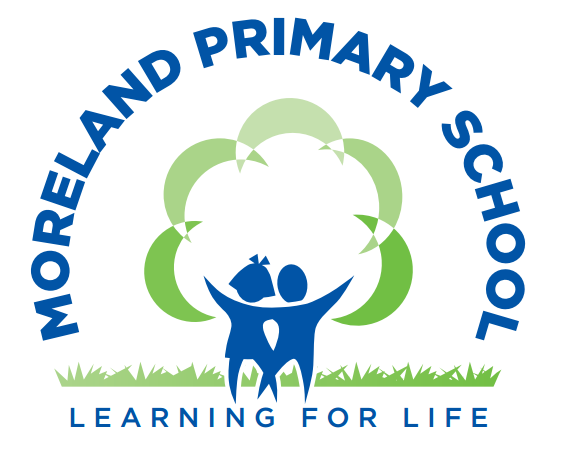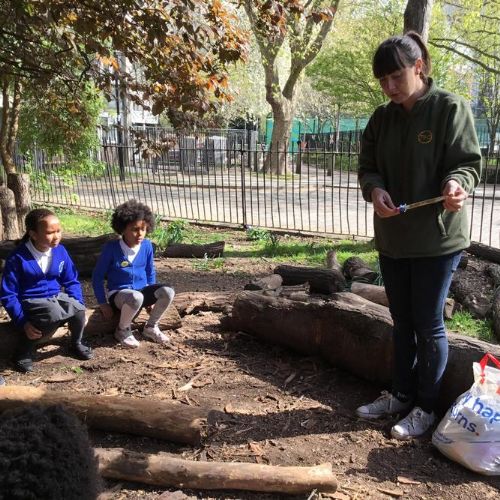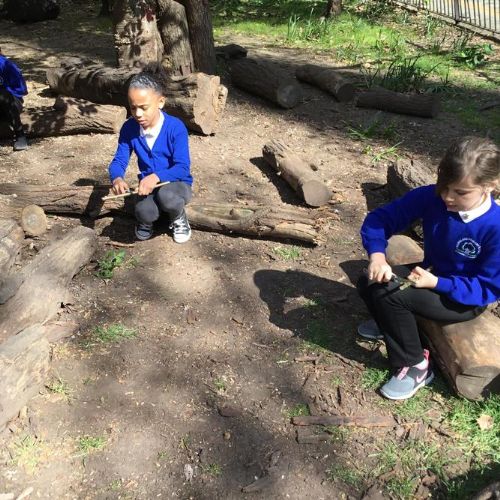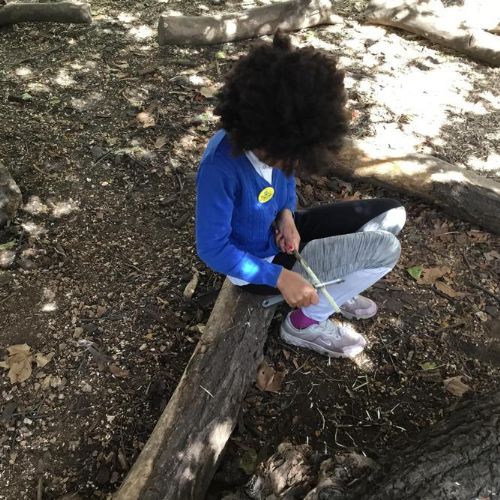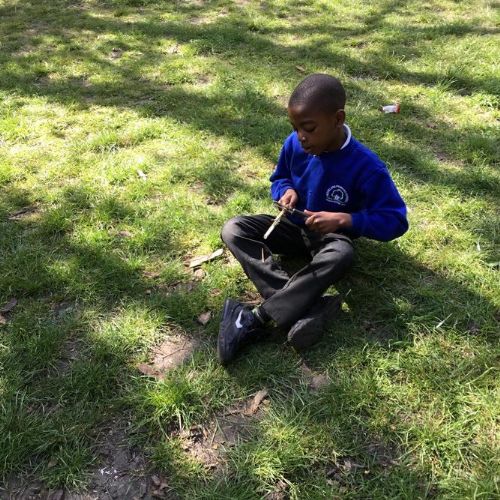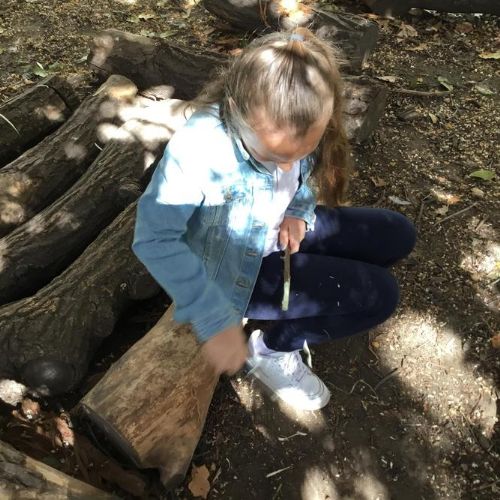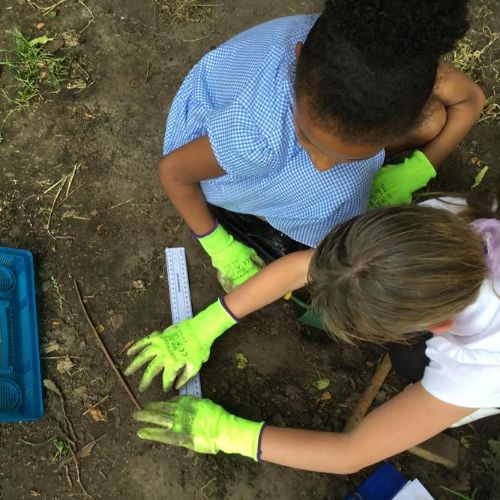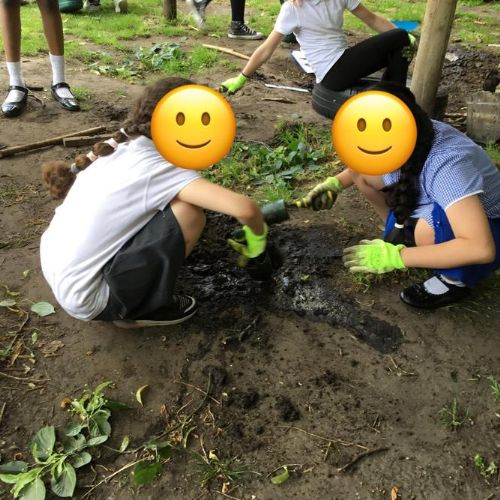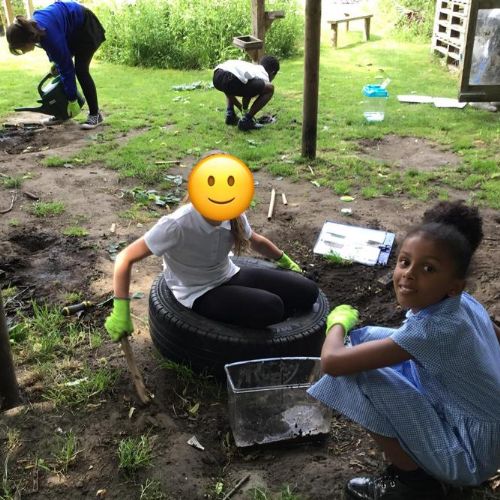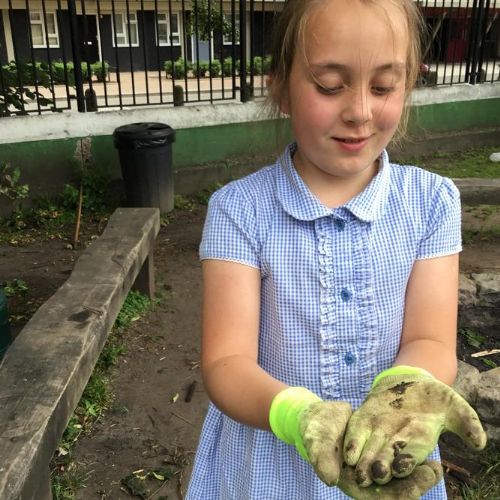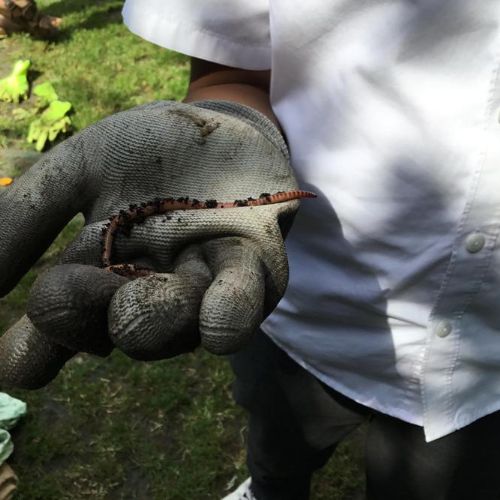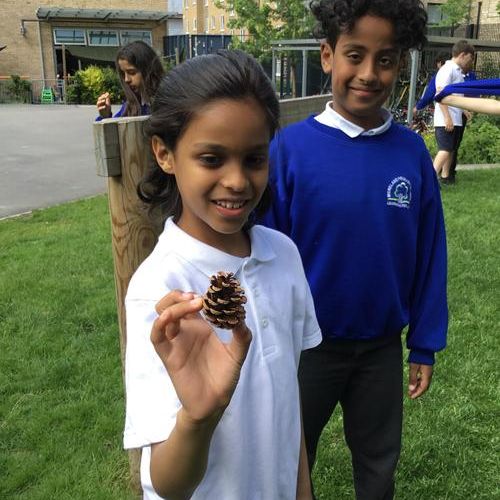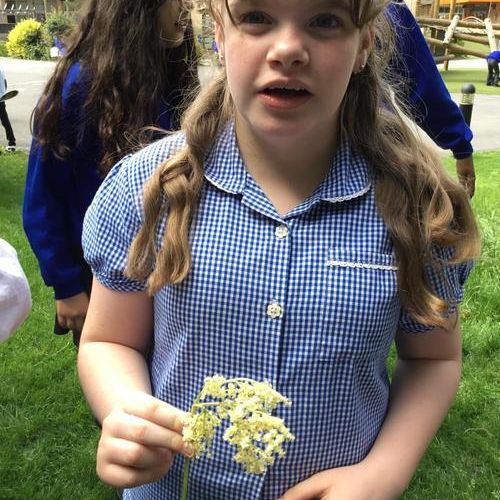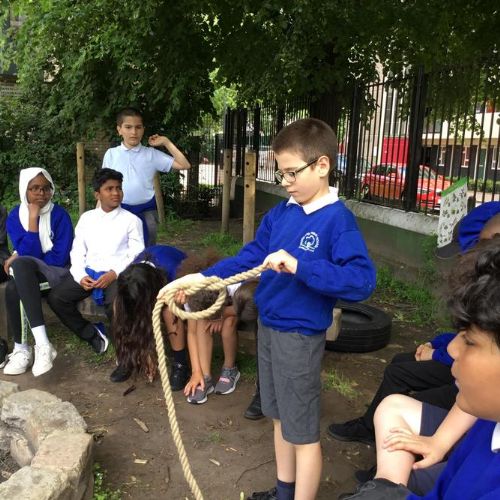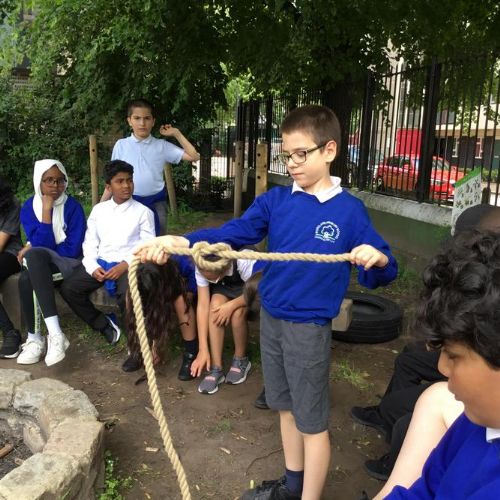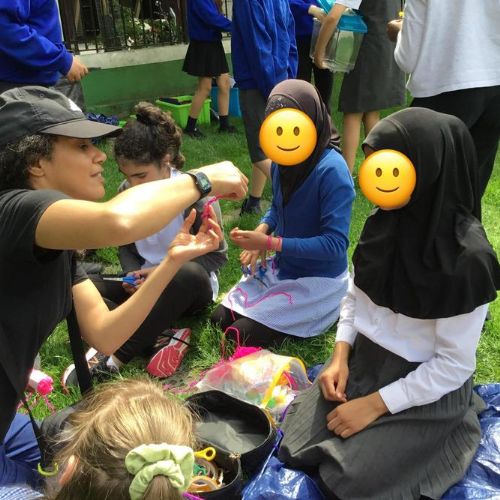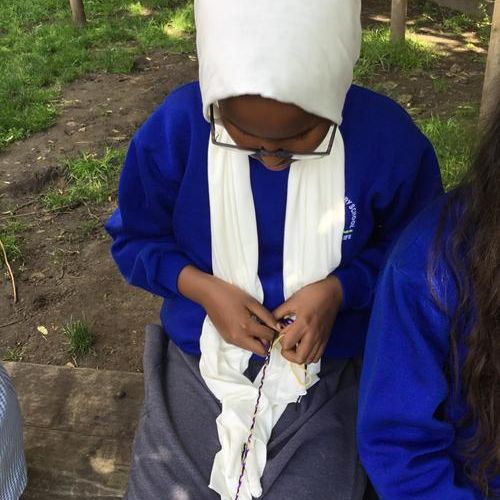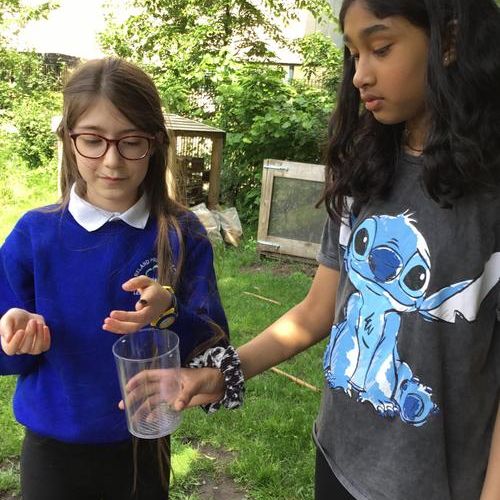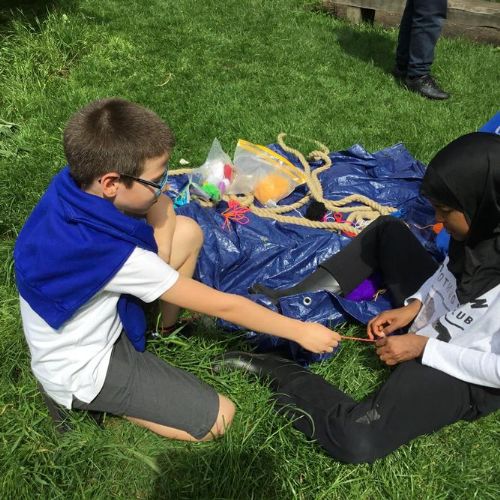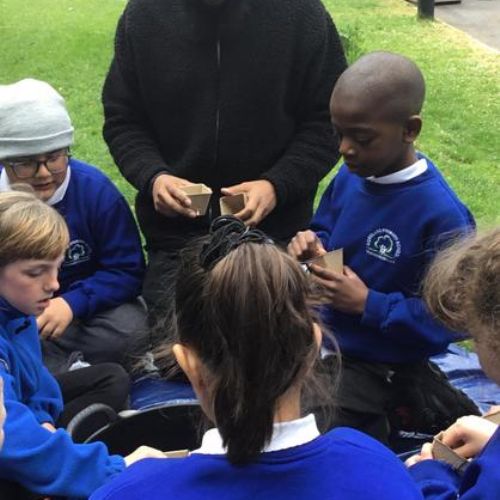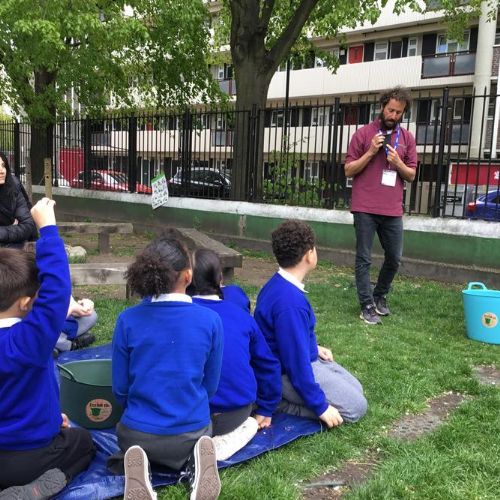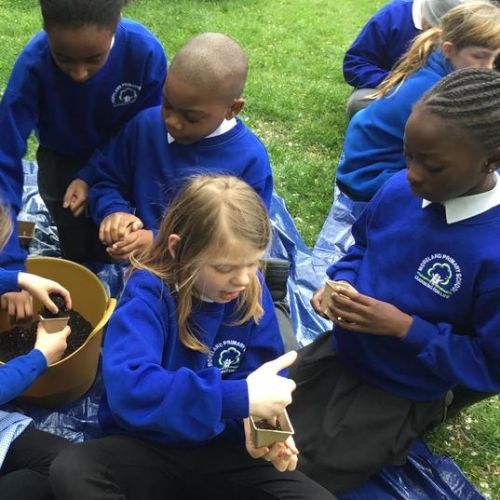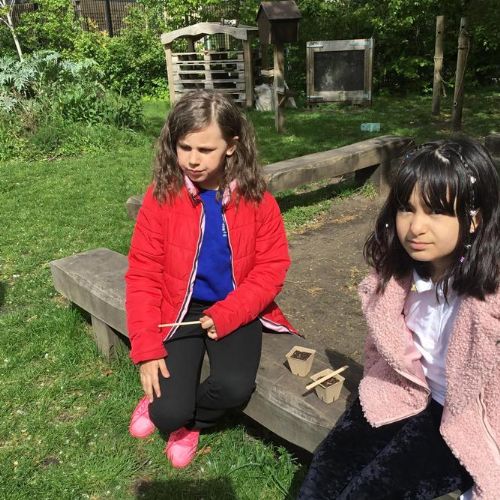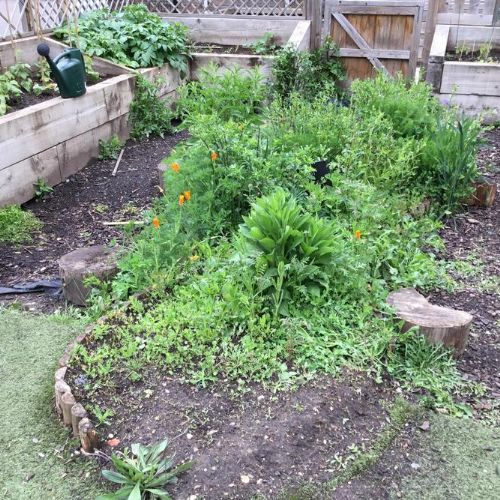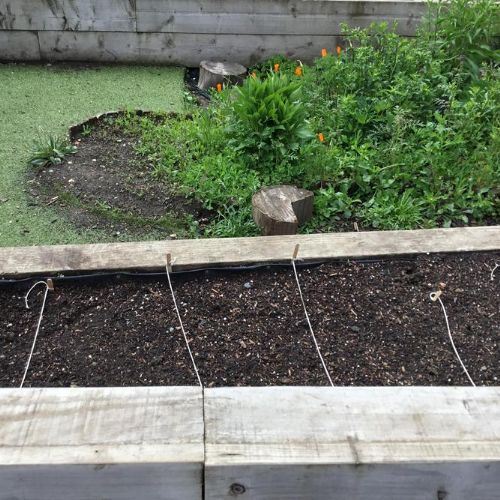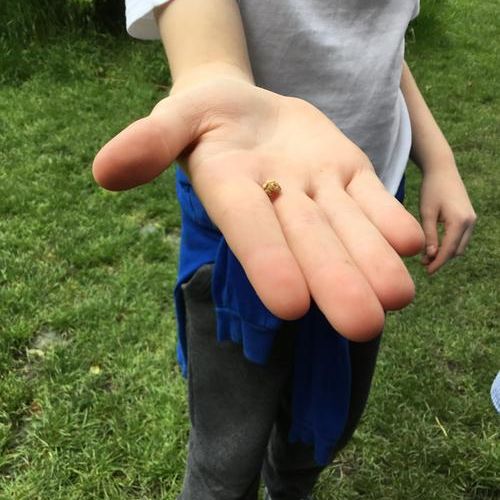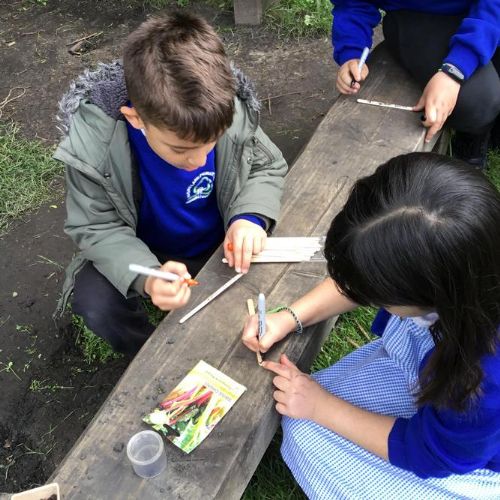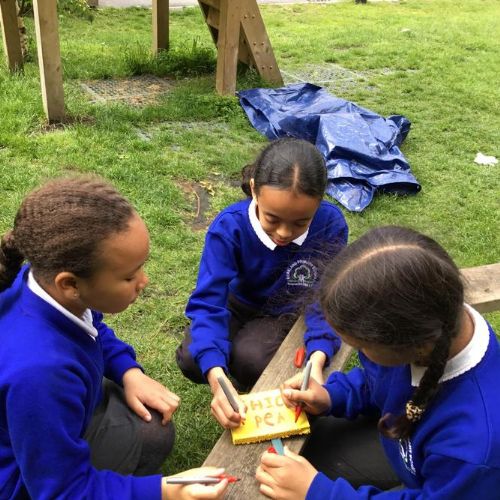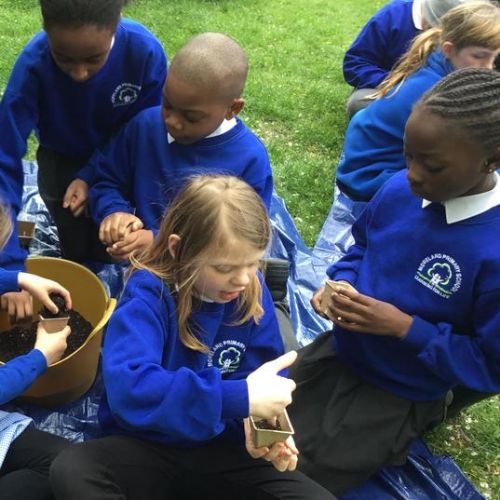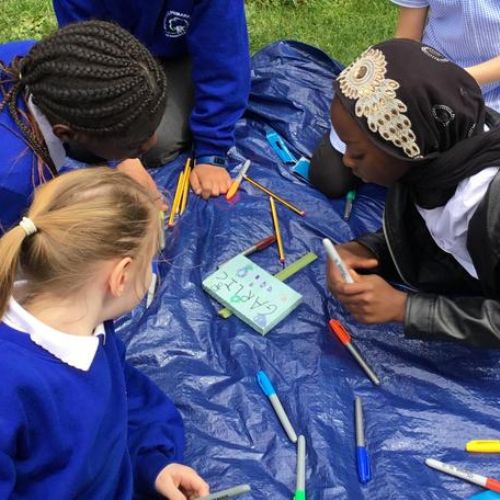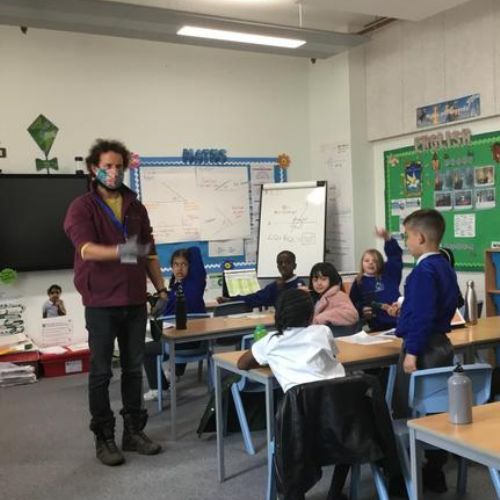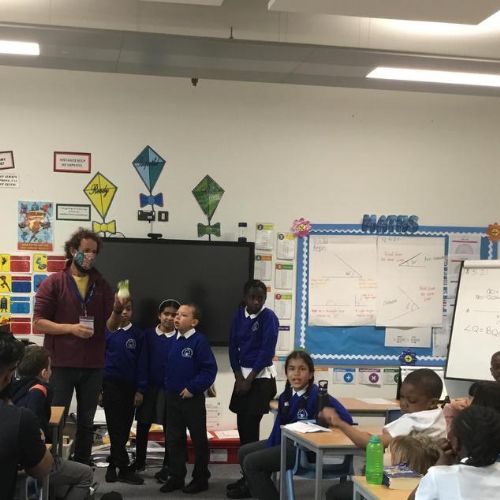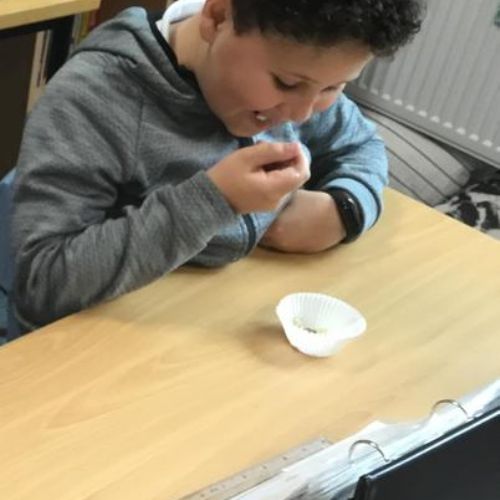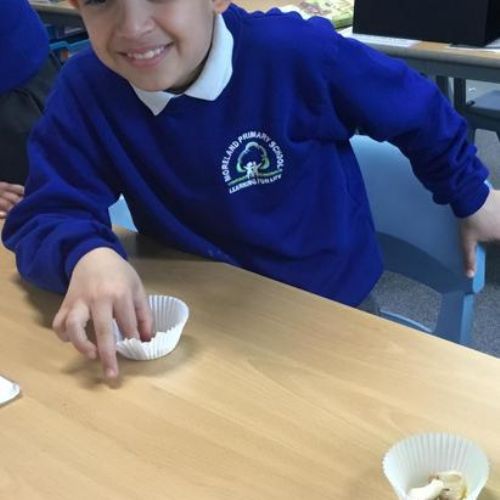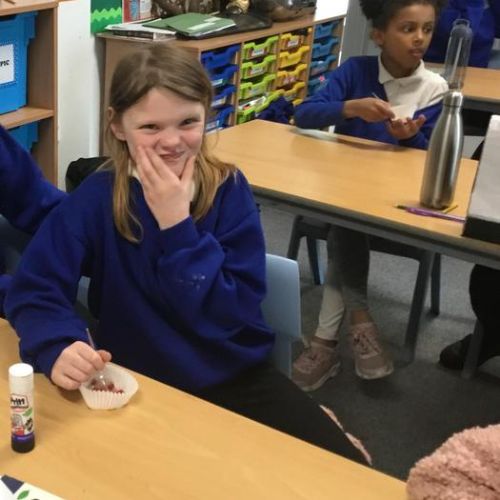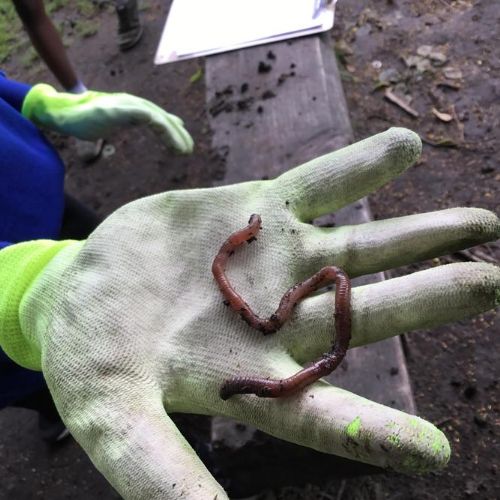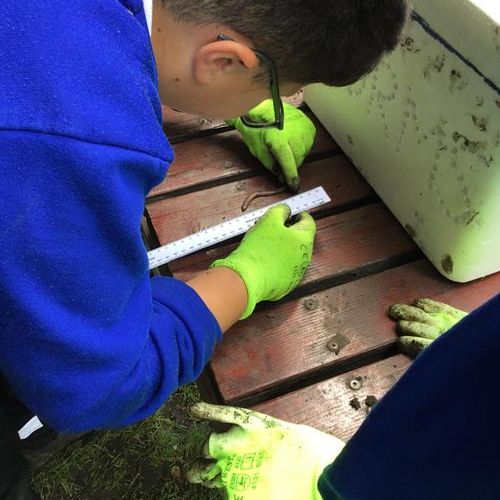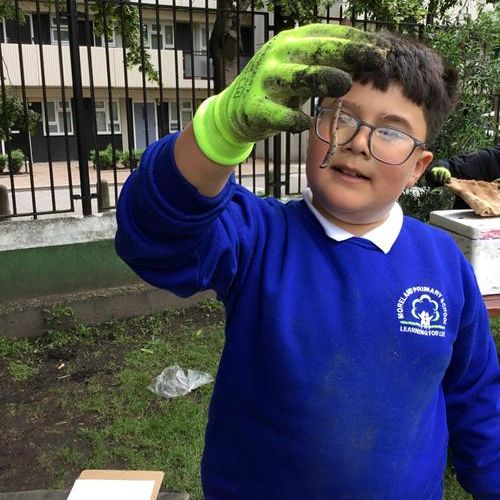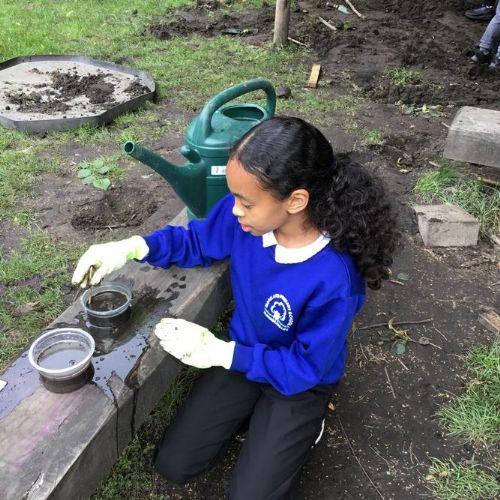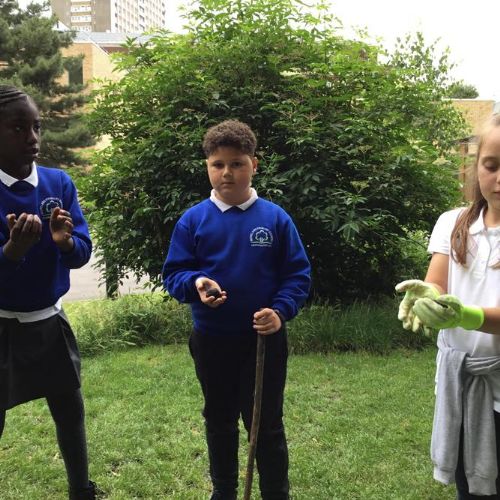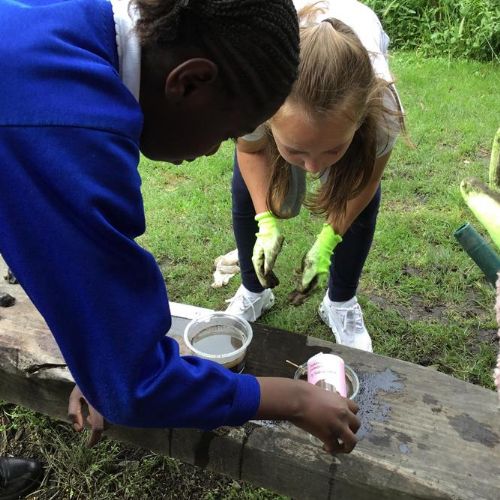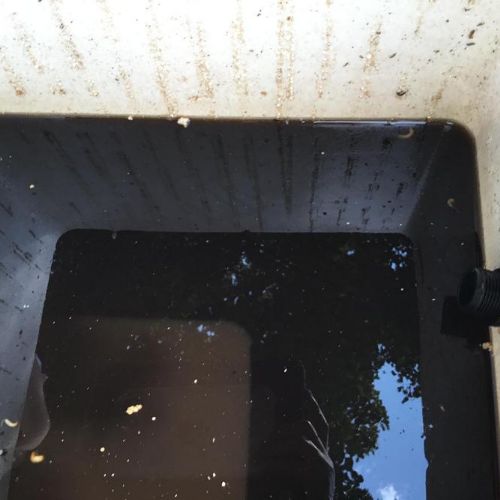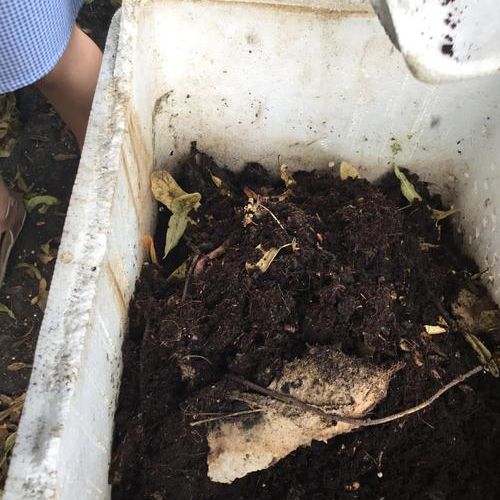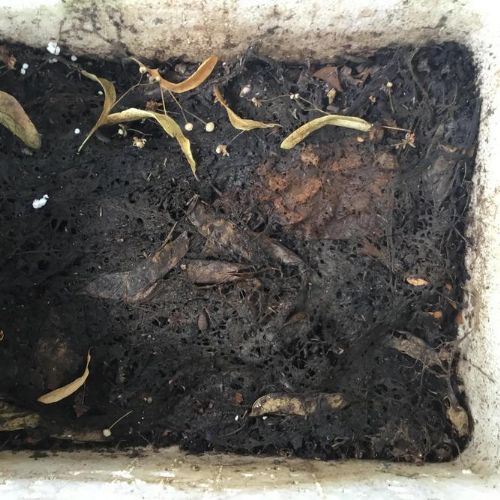Outdoor Learning and Forest School
Outdoor Learning at Moreland
Every class has an opportunity to learn outside of their classroom in a variety of ways, these include trips and workshops, curriculum linked outdoor lessons and Forest School. We are one of the few schools that have Forest School sessions for every class, these sessions teach a range of Forest Skills and compliment our Emotional Literacy and Environmental awareness learning within the classroom.
Why Outdoor Learning?
'Just as children need good nutrition, adequate sleep they also need to connect with nature.'- Richard Louv
'Natural places are singularly engaging, stimulating, life-enhancing environments, where children can reach new depths of understanding about themselves, their abilities and their relationship with the world around them.’ - Tim Gill
At Moreland our children develop ecological awareness and have an understanding of their place in the world, they are learning to be active citizens so that they can appreciate and respect the world around them.
'No one will protect what they don’t care about; and no one will care about what they have never experienced.' - David Attenborough
The Impact of COVID
Covid has restricted us all so much, we are living in uncertain times and have had to limit our social interaction in a way that has never happened before. Children need to be able to re-develop their interactions and connections with each other and the world around them.
Time in nature has many benefits for our health and well-being and being outside provides a safe environment for children to learn and connect with others in these unprecedented times.
The Benefits of Outdoor Learning
The Wildlife Trusts call for every child to have a daily one-hour nature boost.
Children’s well-being increased after they had spent time connecting with nature: the children showed an increase in their personal well-being and health over time, and they showed an increase in nature connection and demonstrated high levels of enjoyment.
The children also gained educational benefits as well as wider personal and social benefits:
-
90% of children felt they learned something new about the natural world
-
79% felt that their experience could help their school work
-
After their activities 84% of children felt that they were capable of doing new things when they tried
-
79% of children reported feeling more confident in themselves
-
81% agreed that they had better relationships with their teachers
-
79% reported better relationships with their class-mates
Each class has the opportunity to have an hour outside everyday. In addition to play and lunchtimes, they also have take part in The Daily Mile and have at least one outdoor learning curriculum linked lesson a week.
The National Trust's 50 things to do before you're 11¾’ activity list:
In 2019 we surveyed our Year 6 and many children had not had the chance to complete the activities, this highlighted the need to provide our children with these experiences during school time and embed some of them as part of our curriculum.
Have a look at the ultimate 50 activities and see how many you have done? What would you like to do next?

Using Tools at Forest School with The Garden Classroom
Exploring, Discovering and Creating
This week we were learning more about who shares our Forest area, we found lots of interesting flowers and minibeasts. We also experimented with natural paints and mark making. We are developing our skills of identification, collaboration and reflection.
-
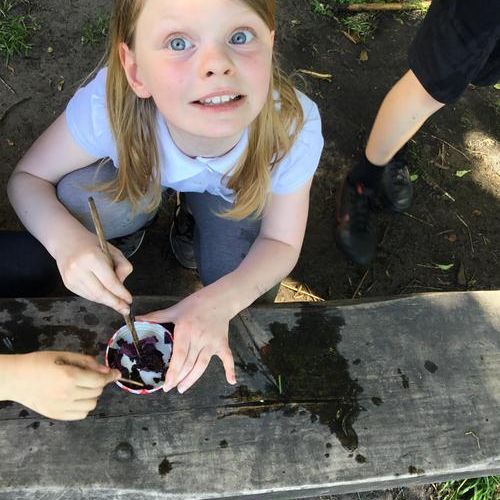
acaf350288974cb3bc69dc4e73d2ea0b1x1
-
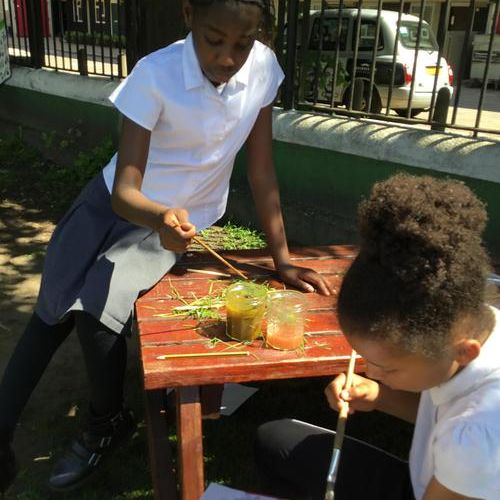
c1aa4b2c39764d8f942d30a829a973031x1
-
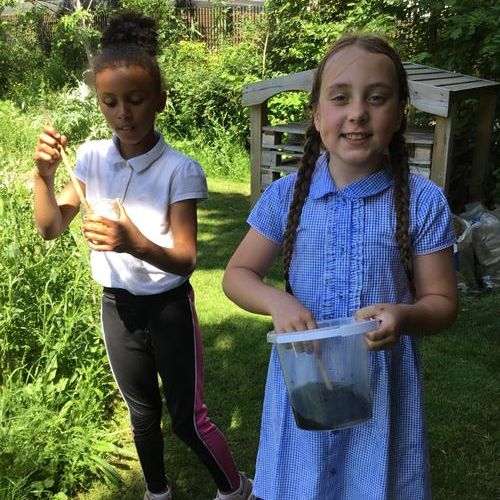
6da21952135e4c218d400f46d6edd7c51x1
-
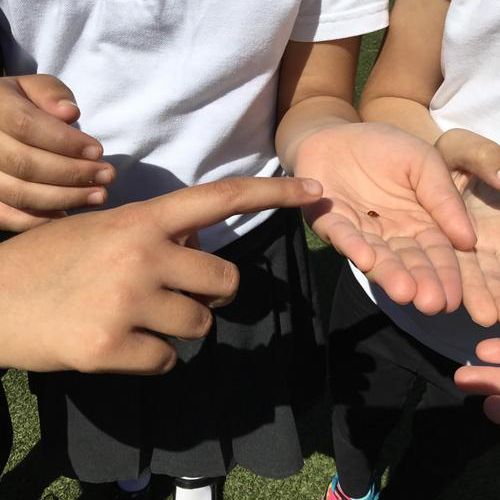
f038b12c3e6f4dfdbdb218b0349879bb1x1
-
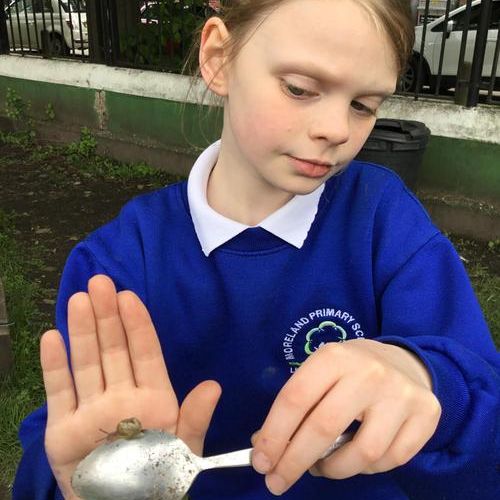
024a88645e724dbf8781810aa11326a71x1
-
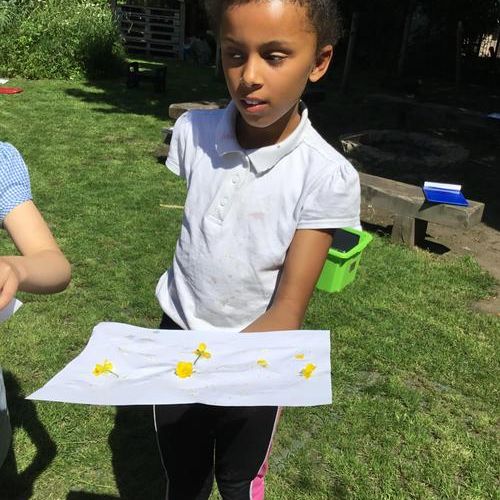
f4572ffb60ca46548d65b1886e0fdb2e1x1
-
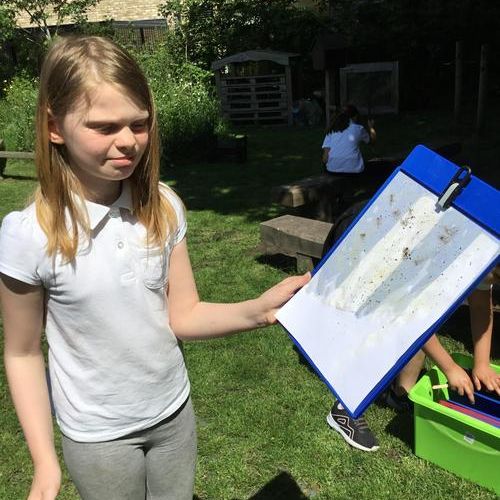
b0a8e61325e3484bb5caec1d8a2f69811x1
-
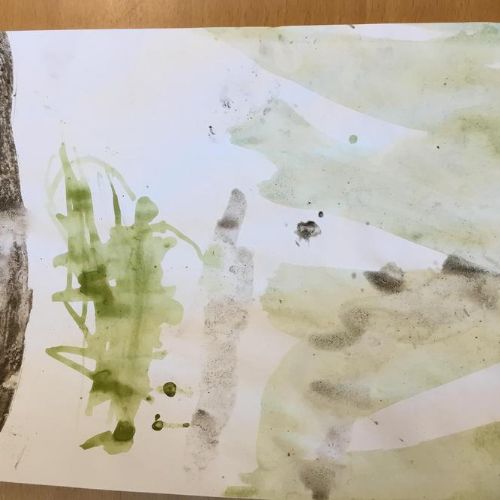
cbc97364cdd24e79921a74cf067e25e41x1
-
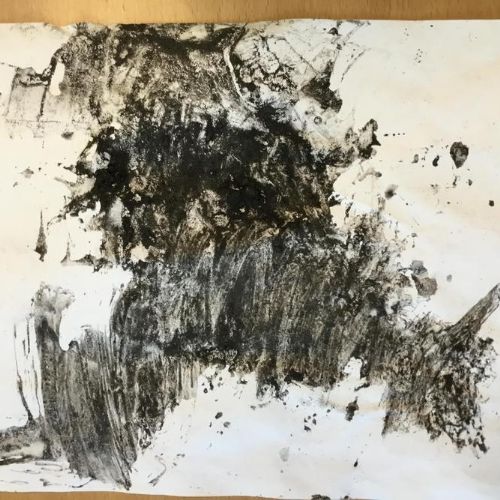
ecffecaefd774fb38e670bf712d0a2a31x1
-
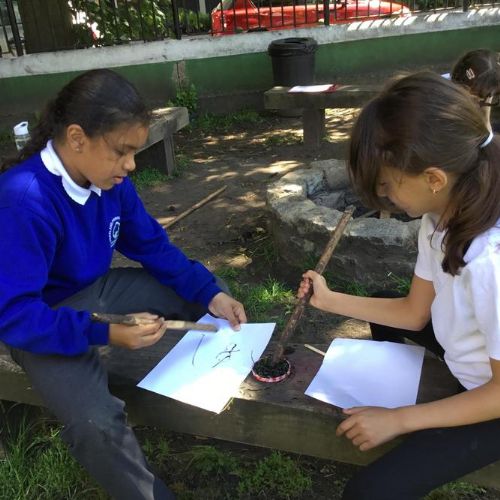
d8348ffa2e25404785526532fc5c6f031x1
-
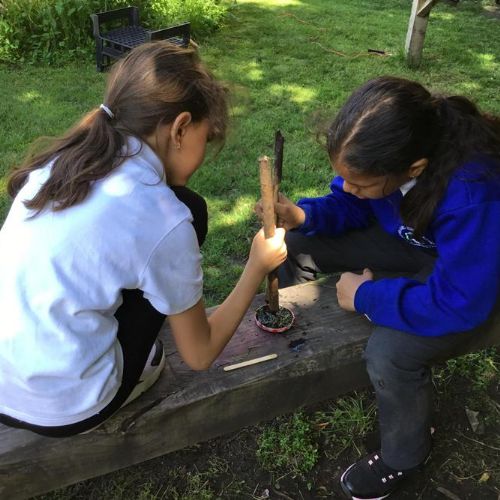
849ff4fbe92d4ebcab4bb4e66997b2e11x1
-
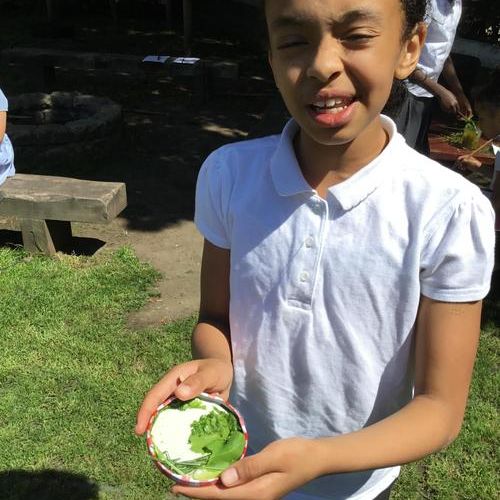
8efeb974218e4fbea43f57bcac8d7ab91x1
-
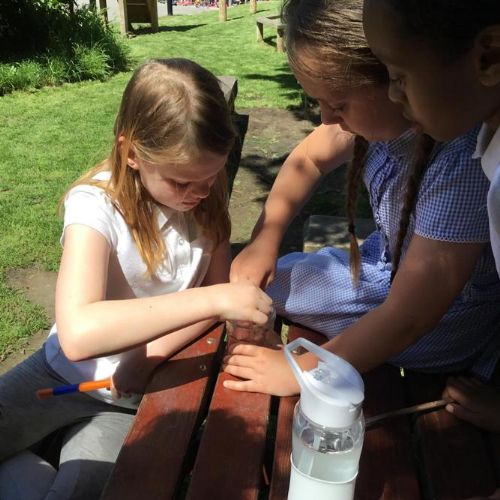
0ba1b692bce54aca8d28e69de4b9ec031x1
-
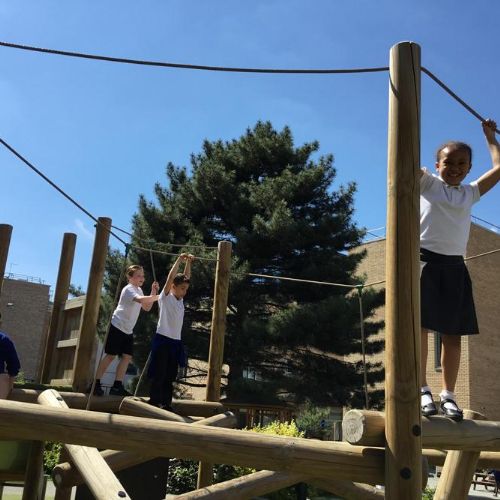
74661c297f864f6a9e595d31bb55049b1x1
Worm Hunt
We are lucky to be taking part in The Country Trust Food Discovery Project see Food Discovery Project. As part of the project we learn about our school grounds and this links with our Forest School theme of Forests learning about who we share our forest area with.
This week we went on a worm hunt! We were finding out what type of worms live in our forest area. We used ID charts and rulers, string and measuring tapes to measure the worms.
It was quite challenging to identify the worms because they were so small. If they were smaller than 2 cm then they are not mature and we couldn’t use the identification guide, but we had loads of fun digging and searching for them.
Worms are Wonderful
As part of our session Kieron from The Country Trust told us some amazing facts about worms.
There are 5500 species of worm, 29 native to UK.
We found out that worms like to eat soil and dead leaves, plants and food scraps.
They help the soil by creating tunnels that increase the amount of air and water that gets into the soil. They need to be get moist, when it is hot they go deep underground. They don’t have lungs so they breathe through their skin.
Soil Scientists
As part of our Forest skills we wanted to know what type of soil we had. Kieron from the Country Trust showed us how we could test the soil in our forest area. We conducted three tests.
We conducted a test the soil composition. We made a ball and gave it a squeeze and found that we had clay soil.
Next we did a ribbon test by pressing the soil between our thumb and index finger and then measured the bits that broke off. Then we did a texture test by making a puddle and feeling whether the soil was smooth or gritty or both. Finally we tested the PH levels of the soil.
“ The soil is gritty, but when you put your fingers on it, it is smooth too.” “I can feel crumbs.”
As you can imagine we got very messy, but it was lots of fun being soil scientists!
“I never knew there was clay and sand in mud.”- Malika
“We learned lots of facts about soil.”-Mayah
“I liked collecting the worms for the compost bin.” -Aras
-
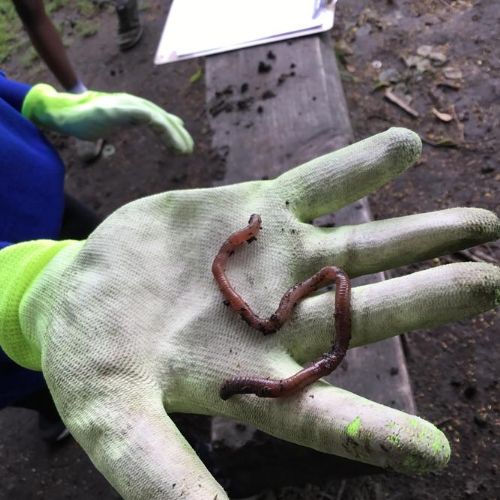
fd1e4c9e11d547b4adde07632647e6eb1x1
-
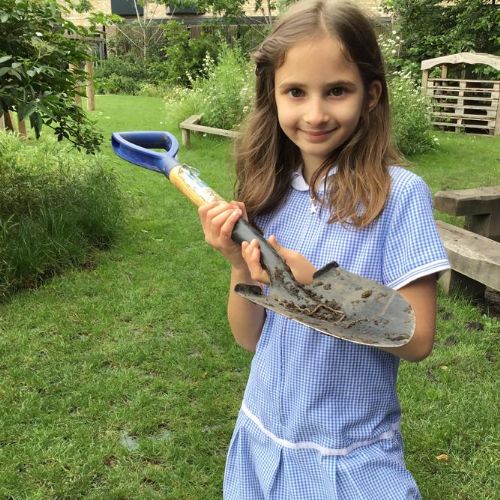
9eab03a9e519464cab65a06d6af1ce861x1
-
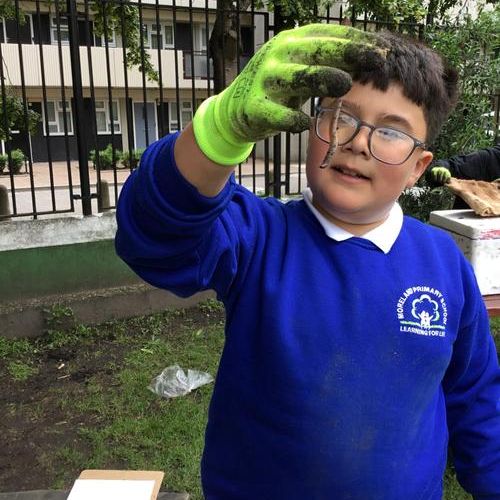
f8934053f3bc426c8d8be0b73c8012b21x1
-
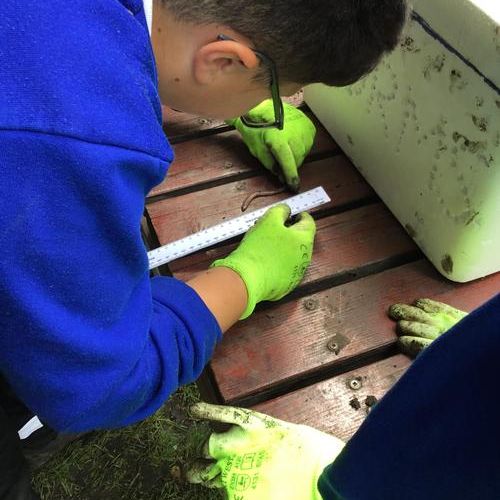
874233a47cfa4790b08e1d21cf9f47ed1x1
-
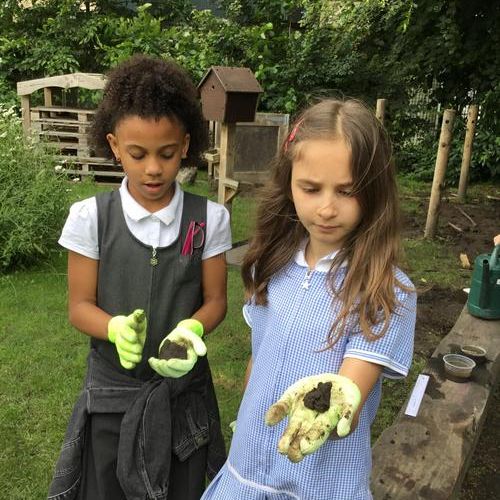
2dfe14848116473bb3b7728c94936ca01x1
-
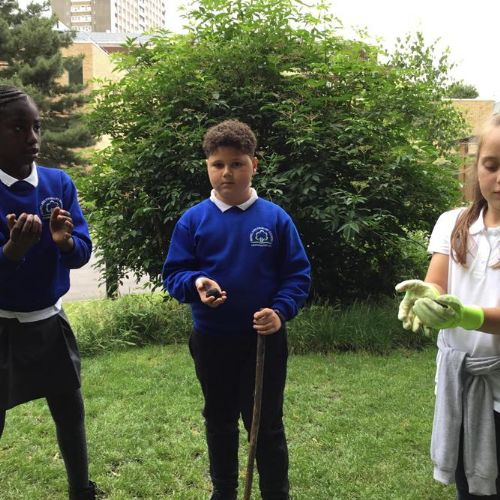
2ace2a2012714c808828df254dca24731x1
-
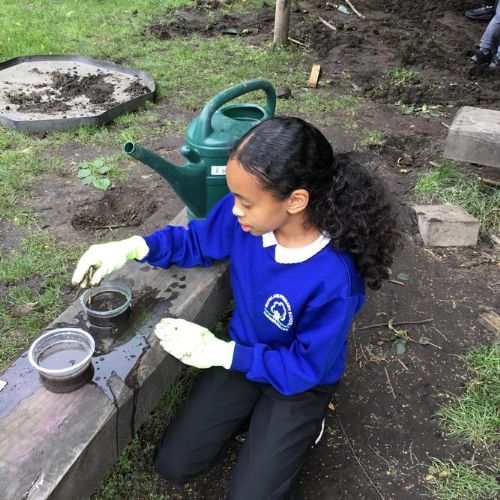
763a08498b4245a896d11491073034591x1
-
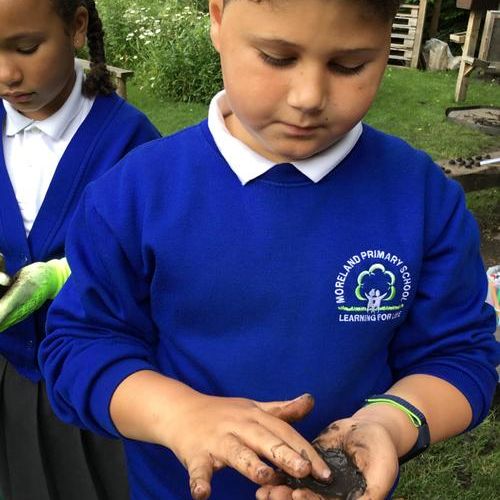
0f476ee77c3e4a93b5a289a8824d6a971x1
-
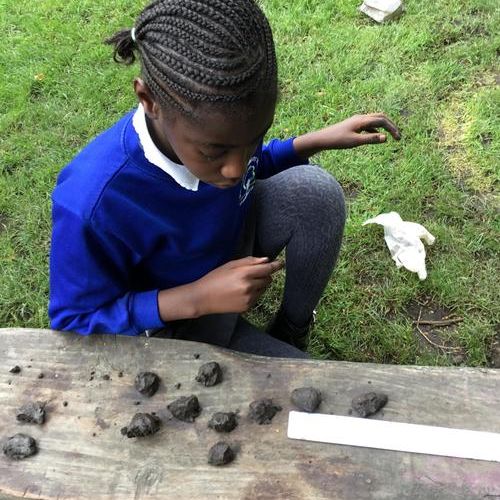
f5a679d1f9974040b1df005ac27cced61x1
-
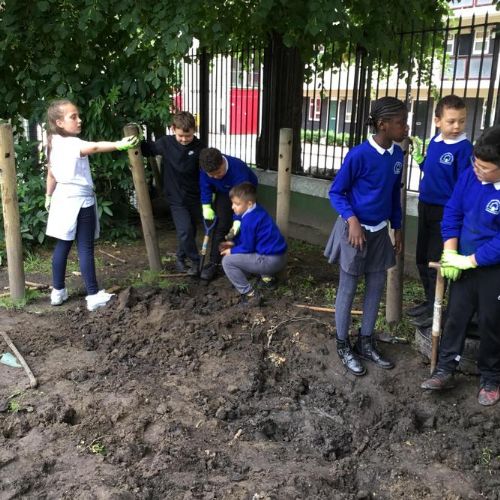
d9165d87eb584d068cca54590b8537401x1
Forest School Session
Today we found out about how to be safe in the forest area and what lives in our forest.
We explored our space, did a nature scavenger hunt, some of us chose to look for minibeasts and we all learnt how to do an overhand knot.
To help us remember the rules ‘We look after each other’, ‘We look after ourselves’ and ‘We look after our Forest’ we used our new knot skills to make friendship bracelets by making a three strand plait or did a paired twisted bracelet.
The skills we were developing were teamwork, fine motor skills, concentration and perseverance when things are a challenge!
We had lots of fun and are looking forward to our next session.
The Country Trust Food Discovery Project
A year-long programme to support educators and their students in growing, eating and even selling food!
In our Food Discovery sessions, led by experienced Country Trust Coordinators, children grow their own food, learn cooking skills and how to make some healthy, cheap and delicious recipes.
They explore all aspects of food through farm visits, meeting food heroes, running a playground market and even preparing and sharing a Harvest Feast. We provide a safe environment for tasting food so that children develop food confidence, and we build and share knowledge that helps children to begin to make informed food choices. (The Country Trust website)
. In our first session, we met our coordinator Kieron who explained what the project would be about. We were going to discover more about food,cooking and gardening by tasting and a range of healthy foods. We had several gardening workshops where we learnt how to prepare the soil for planting. We planted seeds and then looked after them reach week until they were ready to harvest. We grew lots of delicious healthy salad leaves and vegetables, black kale, swiss chard, kholrabi, peas, tomatoes, beetroot, coriander, radish, garlic and even chickpeas! We then we made some healthy snacks to eat using our own organic school produce. We built a home for worms to make nutritious compost using our kitchen waste. We also visited Forty Hall farm and found out more about the different animals and crops that were grown on the farm.
We really enjoyed the sessions and have got lots of new skills from taking part. Kieron was a fantastic teacher and the children really loved the sessions.
Gardening Planting Peas
Seeds and Signs
Tasting Time- kholrabi, pomegranate, fennel and lycee
Worm hunting
Creating our own Compost
-
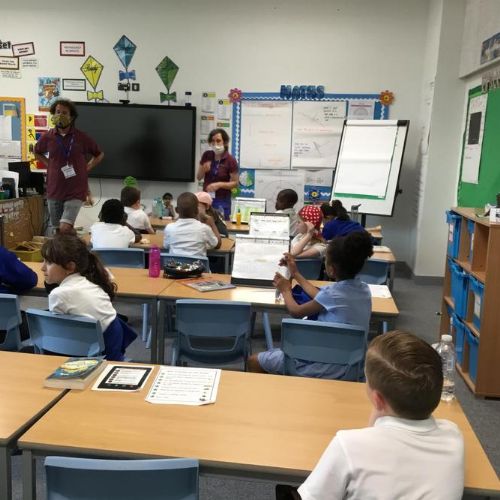
e7636bfe-f8f1-4a97-a891-cd87a0fe3a6f1x1
-
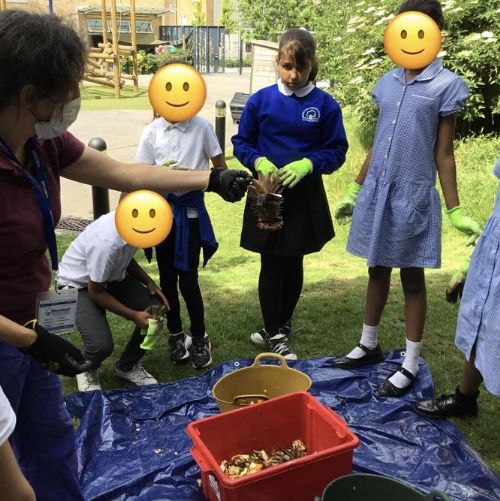
f03e5163-19cd-4ae3-a88b-c13c1b5d50601x1
-
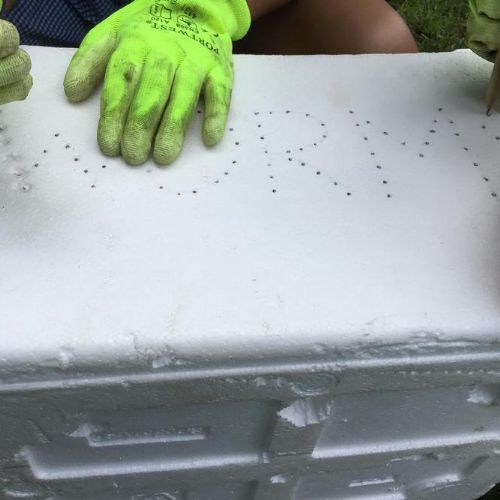
28510387-80de-4359-baaf-d8d3a22122d41x1
-
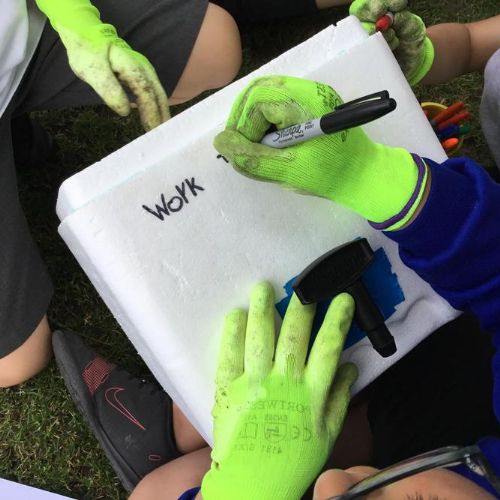
717071f5-4c9d-41e9-90a9-4d9d967d14ed1x1
-
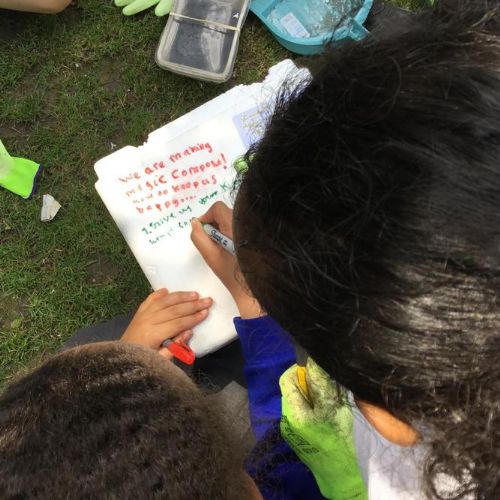
3737d926-4ec8-4bd8-8a42-74d055c27f8e1x1
-
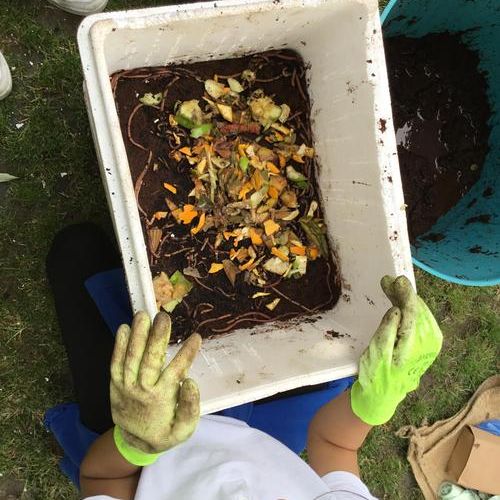
5fd8e0f1-eff7-48e9-b3f6-cb0f11b96ffd1x1
-
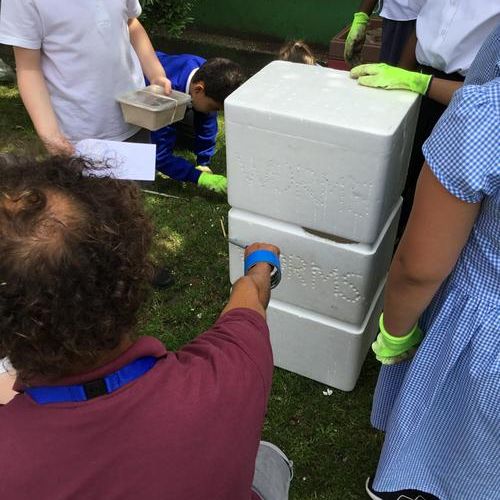
7b656d74-f12f-4f24-93b4-0ac5fcc4f61a1x1
-
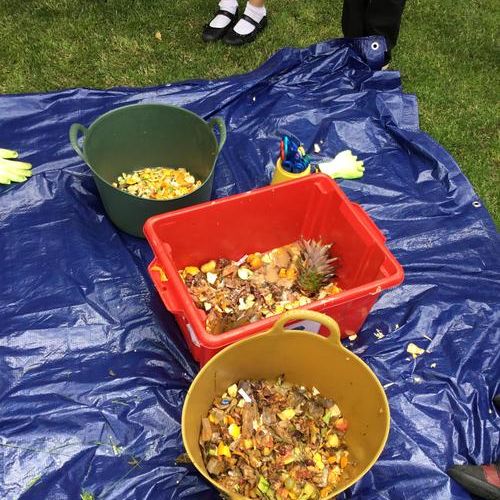
14a455f2-5775-4501-b2a5-caf40f6032651x1
Our Compost is coming along nicely
Harvesting and Cooking
-
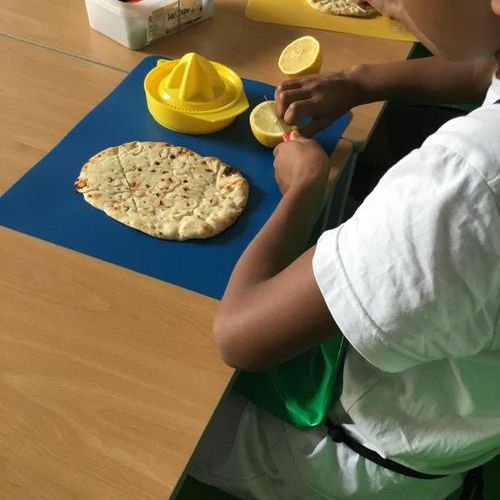
b2d2bf49-15fa-4791-812d-4eee646224c21x1
-
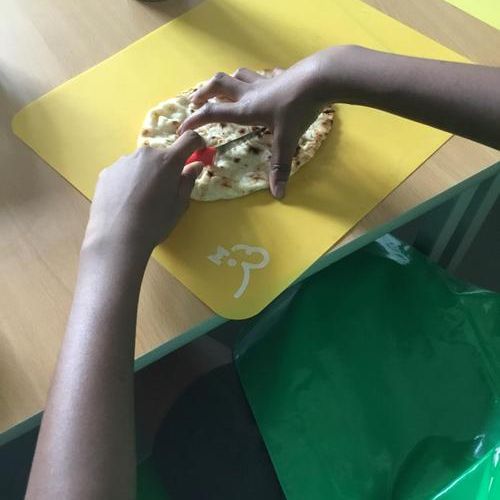
bb7a9d87-4099-4c3a-b6a6-c70062cecf401x1
-
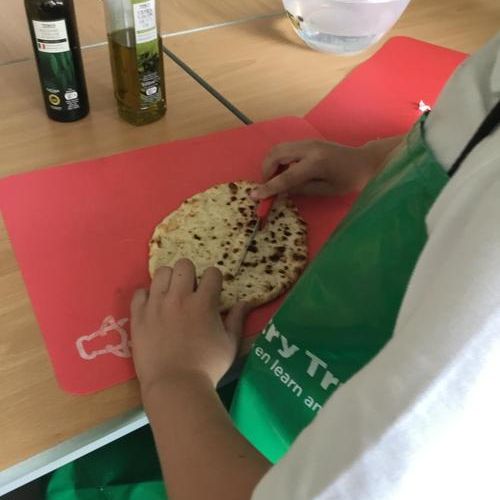
404c07f1-f783-490b-a4f2-cc19347a9dca1x1
-
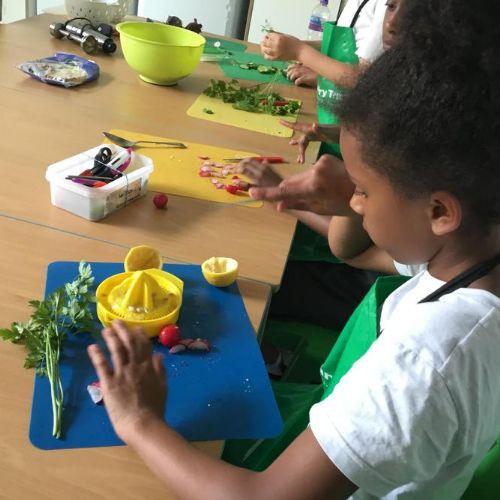
470cf033-5eb6-4b80-ab37-98a945381fe71x1
-
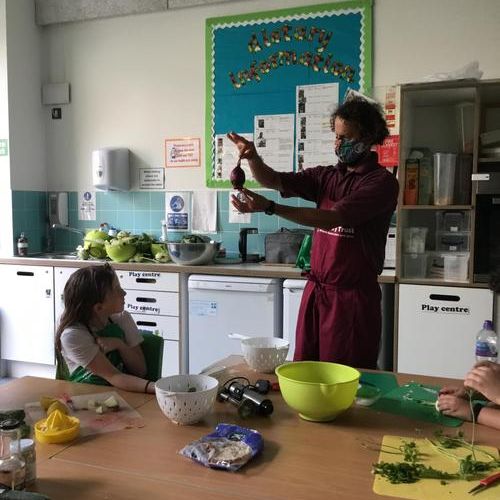
0df1982b-1157-46a6-89a4-9d56c1be28621x1
-
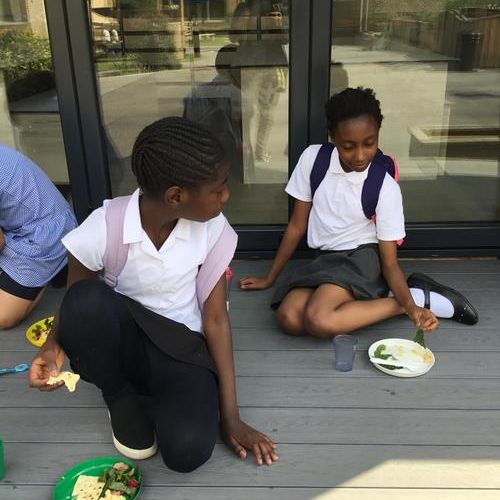
cc14d53c-6b53-418e-a9c6-8542b959ed741x1
-
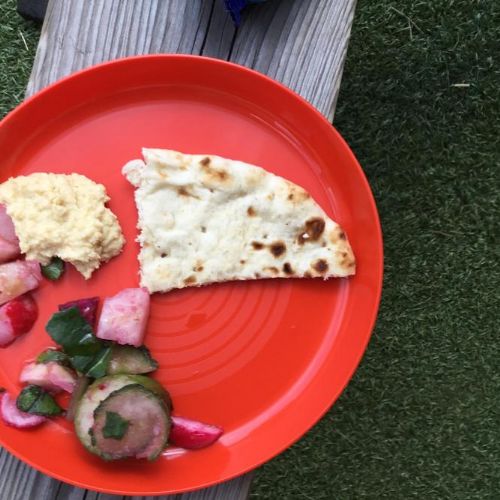
1a594894-3cfd-4634-b91a-819c552e23d41x1
-
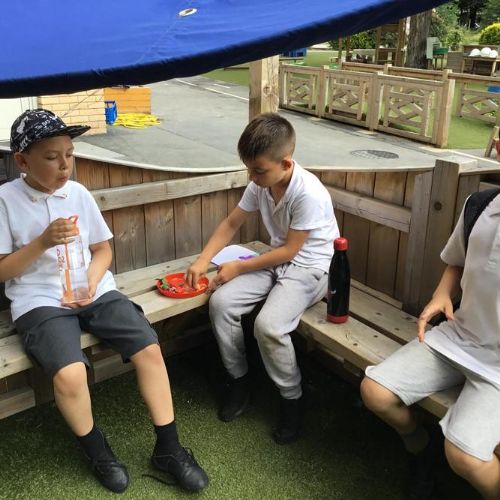
300902c5-9fab-4469-9f54-3516010510c11x1
-
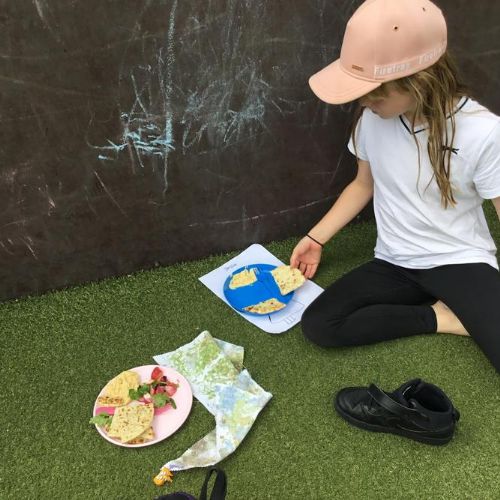
1a79ef0f-e939-4db6-bb65-3598b36747171x1
-
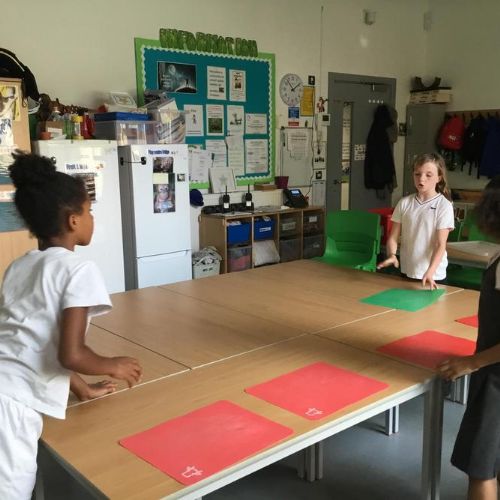
ddf628ba-8458-436d-9789-74a9de1b03cd1x1
-
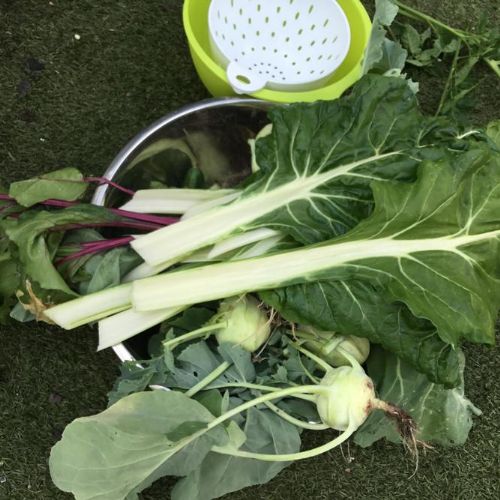
eeca5bd8-042f-491f-bc45-e58d6d160df71x1
-
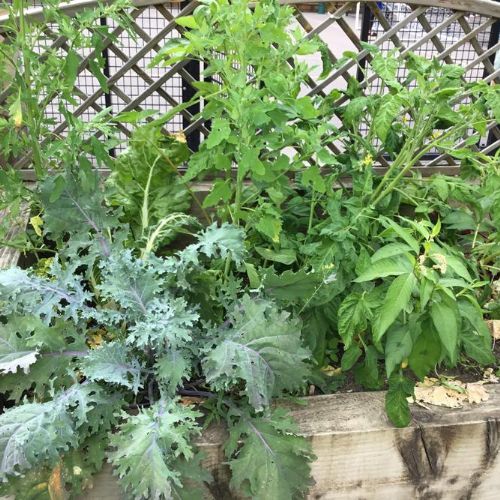
b597f63d-9192-4f75-bbe8-d9f30fa659871x1
-
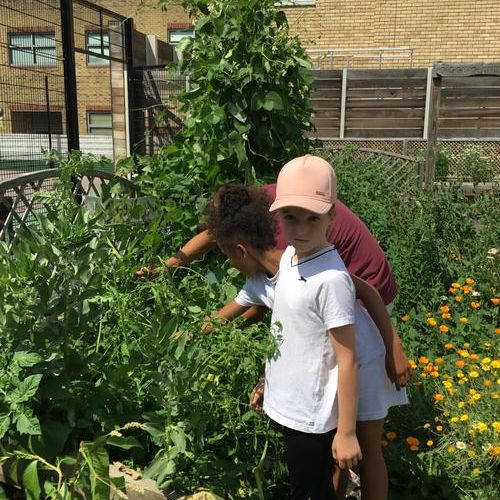
b701e85a-a75a-4de3-b621-e981b841aabf1x1
-
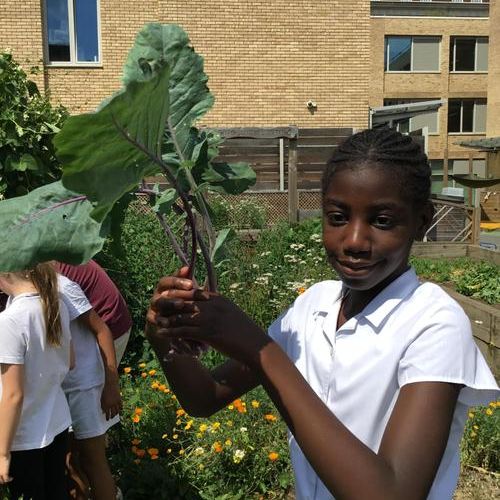
e0a22d9f-ca9f-4397-bc5e-9a0dac2040441x1
-
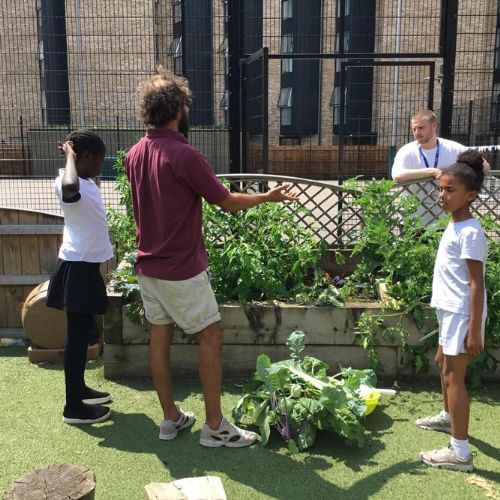
d5e34616-a754-46ee-b5fa-a485ebb3062c1x1
-
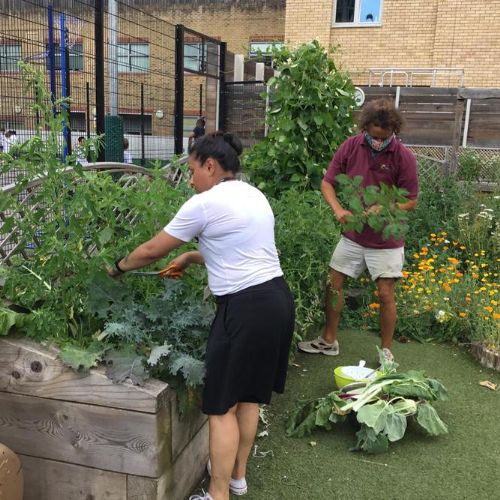
580d385c-8fe4-4a76-86f8-ee88fd8e43381x1
